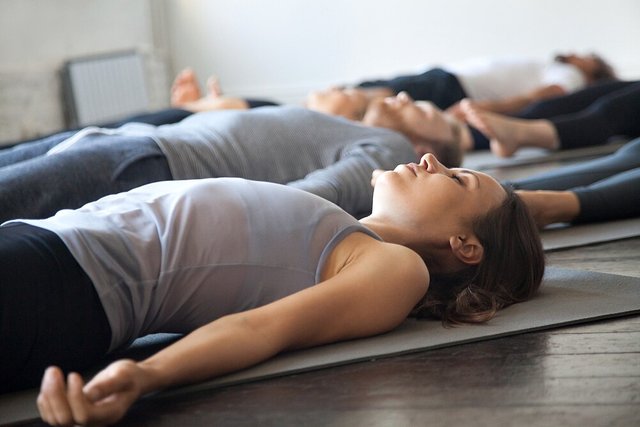Progressive Relaxation
Progressive relaxation is a simple and effective way to reduce stress. It uses the principles of neuronal “top-down” and “bottom-up” processing to produce a state of deep relaxation that promotes mental calmness.
When you're feeling stressed, anxious or worried, your body tightens up in response. This tension can lead to muscle pain and tension headaches if left unchecked.
Progressive muscle relaxation (PMR) is a popular, tried-and-true method for stress reduction and insomnia. It involves tensing and relaxing different muscle groups, one at a time.
It can be a bit tedious at first, but it's worth the effort because over time it can make you more aware of your body and help to lower your overall stress levels.
Practice it often, even when you don't feel like it -- this will help to build up your skill and improve your ability to relax, so it will be much more effective when you do need to use it.
This technique is also known to facilitate a drowsy drift towards sound sleep. It is ideally done in a quiet, calm setting before sleep and can be helpful with sleep problems.
Progressive relaxation is a great way to promote a good night's sleep. This technique involves tensing and relaxing your muscles in a variety of ways, including concentrating on the sensations you feel when a particular muscle group is engaged.
The key is consistency. To reap the benefits of this technique, you should try to practice it at least three times per week. It's also a good idea to start with the most difficult to tense muscles.
Other notable sleep-promoting techniques include visualization, meditation and the use of a bedtime alarm clock. While these techniques may not be as effective on their own, they can be a great companion to other sleep-enhancing strategies like consistent bedtimes and daytime habits that promote slumber. The most important thing to remember is that you should do these activities in the evening, not during the day, to ensure your body will be in the mood for a good night's sleep.
Progressive relaxation is one of the most effective and time-efficient methods for relieving stress and tension. It involves tensing and relaxing different muscle groups in a controlled manner. It can be done on the go, in the comfort of your own home or at a local coffee shop.
The benefits of this technique include reduced anxiety, improved sleep, a feeling of well-being and a healthier cardiovascular system. You should set aside a few minutes at least three times a week for this activity.
To get the most out of this exercise you need to focus on the right areas. Start by focusing on the tip of your toes and visualize a nice warm feeling spreading from your feet up to your ankles, up to your knees and even up your hips. This is a good time to take a few deep breaths and see how you feel afterward. The best part is that you can do this anywhere at any time, preferably while wearing a nice pair of socks.
Progressive muscle relaxation, or PMR, is a very effective way to reduce anxiety and stress. It involves systematically tensing one muscle group at a time, then releasing the tension and noticing the difference between being tense and relaxed.
When you first start doing this exercise, you may feel a little tense, but you will quickly learn to differentiate between the feeling of a tensed muscle and the calmer feeling of being relaxed. This can help you to recognize when you’re starting to become tense during the day and allow you to relax as soon as possible.
Guided imagery, also known as guided visualisation or hypnosis, is another relaxation technique that can be helpful for reducing anxiety. This involves instructing the mind to imagine a positive experience or situation.
These techniques have been shown to have an immediate impact on state anxiety and physiological arousal. They have been used to treat patients with multiple conditions, including headaches, cancer pain, high blood pressure and digestive disturbances.

